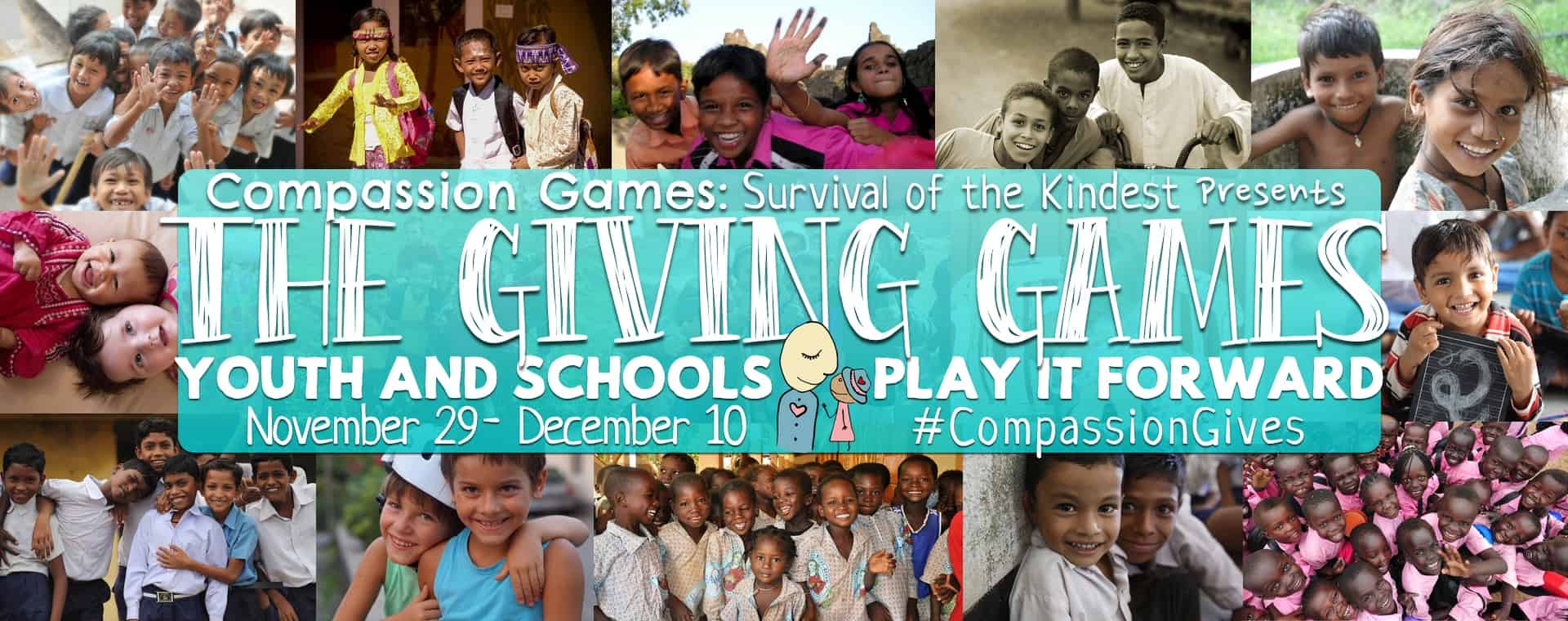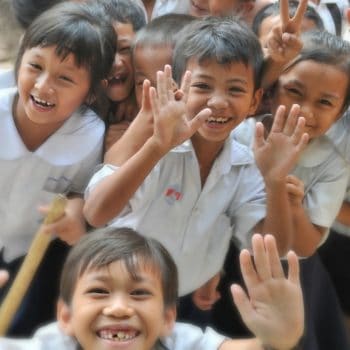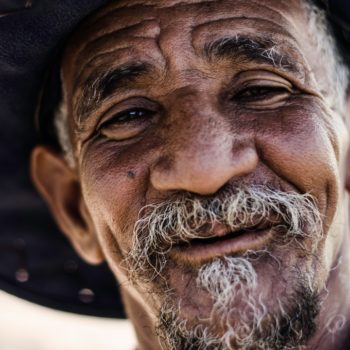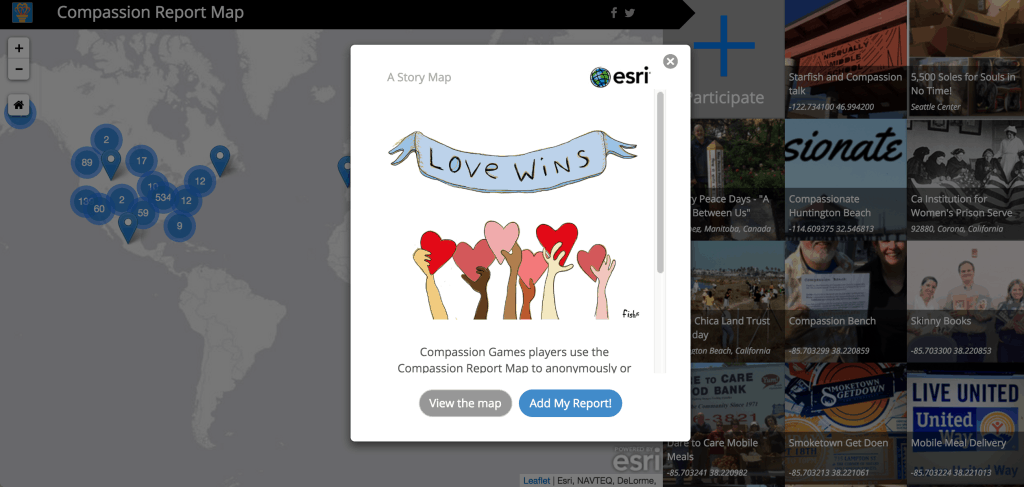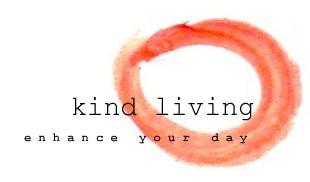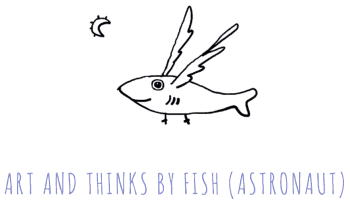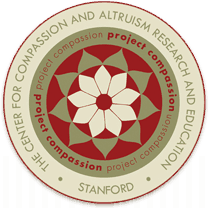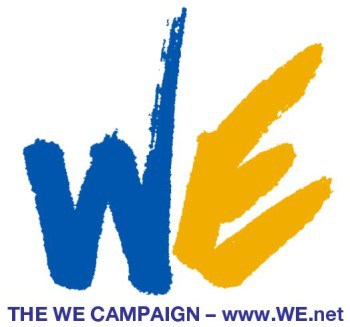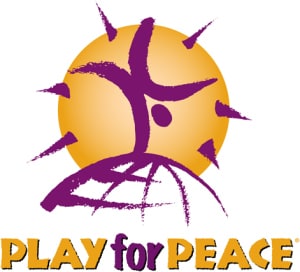The Giving Games Backstory
If you want the shortest possible, bottom-line summary of information about the November 29th through December 10th Giving Games, go here. What follows is the story behind The Giving Games: Youth and Schools Play it Forward.
Table of Contents
- What Are the Giving Games?
- Giving Games Motivating Vision
- Why Play the Giving Games?
- Impact of Participating in the Giving Games
- Ways to Play the Giving Games
- Four Featured Global Projects
- The Compassion Report Map
- Resources for the Giving Games
- Partners
1. What are the Giving Games?
The Giving Games: Youth and Schools Play it Forward are a 12 day global challenge to inspire, develop, and celebrate our shared humanity through acts of generosity and compassion. Beginning on November 29th – a day known as Giving Tuesday – and going through December 10th, the Giving Games are played globally between youth, educators, and mentors to foster safe and fulfilling places of learning, helping the next generation develop into happy, compassionate, creative, and resilient members of our world!
2. The Giving Games Motivating Vision
What is it that makes human beings remarkable? We aren’t born with formidable claws or teeth to defend ourselves, nor a 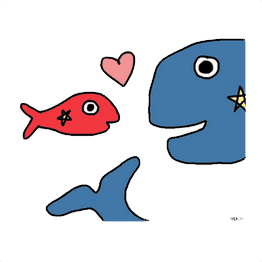 coat of fur to keep ourselves naturally warm and protected from the sun. We cannot fly or blend into our environment to escape danger, nor are we unusually fast compared to our fellow Earthly creatures. In this regard, we grow at a staggeringly slow pace – the slowest pace, in fact, of the entire animal kingdom – where in the first years of our lives we are totally dependent on the care and protection of others to ensure we not only live, but thrive.
coat of fur to keep ourselves naturally warm and protected from the sun. We cannot fly or blend into our environment to escape danger, nor are we unusually fast compared to our fellow Earthly creatures. In this regard, we grow at a staggeringly slow pace – the slowest pace, in fact, of the entire animal kingdom – where in the first years of our lives we are totally dependent on the care and protection of others to ensure we not only live, but thrive.
And we do thrive. The very setbacks human beings inherently possess are actually our greatest source of strength and resilience. We thrive not because we are physically outstanding, but because we have developed an enormous innate capacity for cooperation. This cooperation is made possible by our unique ability to deeply empathize with one another, and an intrinsic desire for deep social connections that spur us to have a natural concern for the wellbeing of those around us.
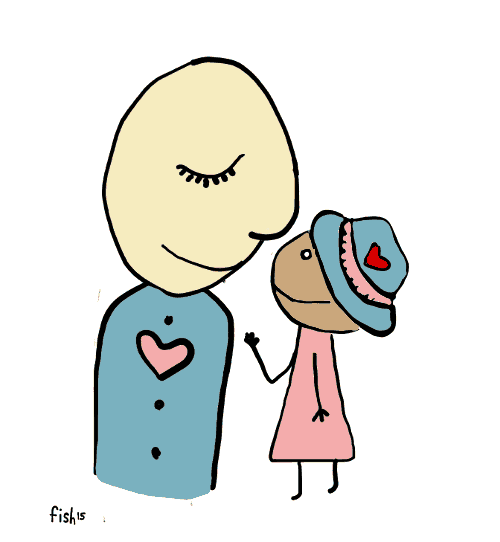 The Giving Games: Youth and Schools Play it Forward are a way to celebrate and put into practice what makes human beings, and our children, extraordinary. The Giving Games celebrate our natural concern for others, our desire and immense capacity to cooperate and work together, and the growth and life-satisfaction that is experienced when we give our fullest selves to the world, to help make it a safer, kinder, and better place to live.
The Giving Games: Youth and Schools Play it Forward are a way to celebrate and put into practice what makes human beings, and our children, extraordinary. The Giving Games celebrate our natural concern for others, our desire and immense capacity to cooperate and work together, and the growth and life-satisfaction that is experienced when we give our fullest selves to the world, to help make it a safer, kinder, and better place to live.
By reminding our youth what makes them truly remarkable, we provide for them the tools to become more compassionate, fulfilled and resilient human beings, capable of living in a world they will one day inherit, and addressing the challenges of a future we will never see.
3. Why Play the Giving Games?
Extensive research in the field of positive psychology is reaffirming the reality that human beings have a remarkable capacity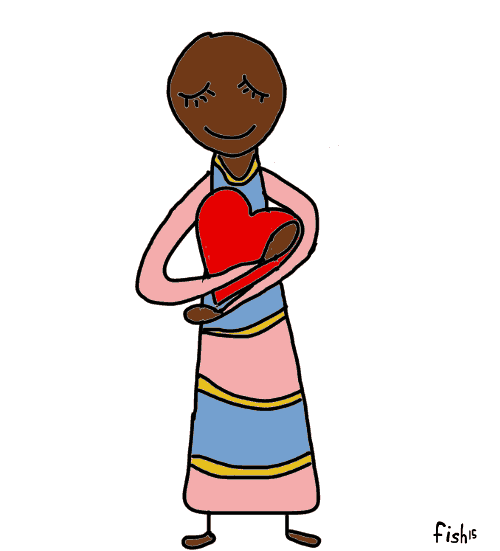 and desire to be compassionate and generous, and that these attributes are vital components to living a healthy and fulfilling life. Giving promotes strong social connections – known as prosocial behavior – that leads people to view others more positively, fostering a heightened sense of interdependence and cooperation in a community. And kindness is contagious, studies show, providing an elevated “warm-glow experience” (or a “helper’s high”) that ignites a virtuous circle of giving that boosts the health of a community as a whole!
and desire to be compassionate and generous, and that these attributes are vital components to living a healthy and fulfilling life. Giving promotes strong social connections – known as prosocial behavior – that leads people to view others more positively, fostering a heightened sense of interdependence and cooperation in a community. And kindness is contagious, studies show, providing an elevated “warm-glow experience” (or a “helper’s high”) that ignites a virtuous circle of giving that boosts the health of a community as a whole!
The Giving Games are a fun and meaningful way for youth and schools to experience compassion firsthand by putting generosity into play! Let’s challenge each other as we strive together to make the world a safer, kinder, and better place to live!
Like anything, these qualities must be experienced and practiced for them to develop to their full potential. In the audio clip below, learn how educator Rahbin Shyne planted seeds with the Compassion Games that grew into a cultural transformation on her campus.
4. Impact of Participating in the Giving Games
The Compassion Games’ Giving Games are designed to amplify what is already working in your community as well as inspire
new ways to bring compassion and generosity to life. The Giving Games are an open platform – bolstered by the support and momentum of a global network of organizers and educators like you – to be creatively used and adapted in any way that fits 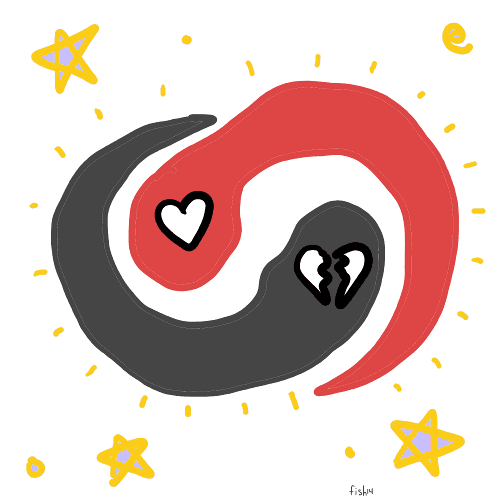 your community’s needs.
your community’s needs.
The following six themes offer a way to appreciate the impact and benefits of participation in the Compassion Games. The Compassion Games are a:
- Catalyst to Ignite Change
- Amplifier of What’s Already Working
- Framework and Baseline for Measuring Compassion Strength
- An Engaging Environment for Reflection and Learning
- A Platform for Cultivating Open Participation
- Connection to a Global Movement
5. Ways to Play the Giving Games
All the ways to play the Compassion Games are intended to promote service and compassionate action with a framework for reflection on the Compassion Report Map. Ways to Play are typically framed within three dimensions: 1) having compassion for oneself, 2) having compassion for others, and 3) compassion for the Earth.
Featured Way to Play: Secret Agents of Compassion
Secret Agents of Compassion continues to be one of the most exciting and popular ways to play the Compassion Games 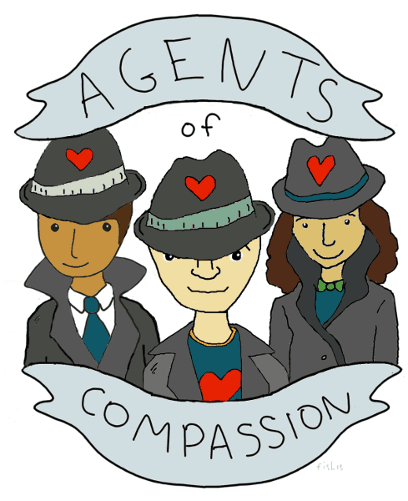 during a coopetition. Each day for the 12 days of the Giving Games, a Secret Mission is released to registered players and teams to inspire compassionate acts in their world with a framework for reflection.
during a coopetition. Each day for the 12 days of the Giving Games, a Secret Mission is released to registered players and teams to inspire compassionate acts in their world with a framework for reflection.
Team organizers of registered teams can choose to receive all 11 Secret Missions in advance to better incorporate the Missions in their educational work plan.
Invite and Challenge Others to Play
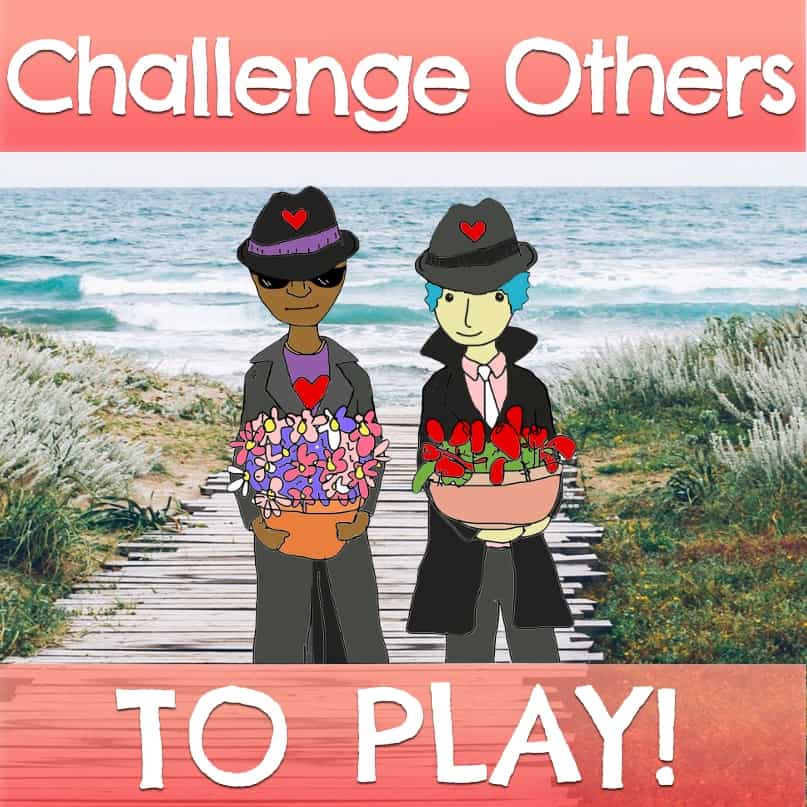 Player and teams can invite and challenge others to play with them in the Giving Games. For example, a team could boldly state “We are the most generous classroom/school in the world, and will be so until proven otherwise!” This is of course a playful way to engage and motivate others to step up and participate. No one can lose the Giving Games! Instead, as the more people that play, the more people end up winning as they benefit from a more compassionate environment.
Player and teams can invite and challenge others to play with them in the Giving Games. For example, a team could boldly state “We are the most generous classroom/school in the world, and will be so until proven otherwise!” This is of course a playful way to engage and motivate others to step up and participate. No one can lose the Giving Games! Instead, as the more people that play, the more people end up winning as they benefit from a more compassionate environment.
6. Four Featured Global Projects
In addition, the Compassion Games has partnered with the Charter for Compassion International to bring you four featured projects that you and your youth can choose to support! Each project focuses on one of the Charter’s partner organizations, each part of a community of thousands of groups, governments, and individuals collectively working to bring the Charter for Compassion to life around the globe. Work with your students to select one of these projects to focus on during the Games!
Project #1: Help Build a School for Sierra Leone Orphans
Sierra Leone was one of the most hard-hit areas during the recent Ebola outbreak in Africa, creating a sudden influx of orphaned children in desperate need of immediate care, shelter, and provisions which ChildHelp provided with the assistance of donations and volunteers. The next phase of support for these children is providing education. So far, ChildHelp has raised $13,400 USD towards the $80,000 USD needed to build a brand new school. Learn More About Project #1 and How You Can Support It!
Project #2: Provide Supplies for Homeless Families in Botswana
The Botho Compassion Movement is currently serving homeless families in Jwaneng squatter camps. Collaborating with local organizations, they delivered food and clothing on October 19th and 21st 2015. The Botho Compassion Movement is attempting to address concerns such as child health and safety in the camps. Though the challenges are great, founder Magdalena Whoolery feels that “with determination and perseverance we can turn this terrible situation around.” Learn More About Project #2 and How You Can Support It!
Project #3: Give Girls in Pakistan Access to Education
The Sindhi Foundation is a global advocacy, education and charity organization working to promote human rights for Sindhi people across the globe. One of their many education projects is a Sindhi School for young girls in Pakistan. Many of us see education as a fundamental human right, but this is not always the case in areas of the world such as the remote village where Naseem Lohar and two other teachers are responsible for teaching 100 young girls, ages 6 to 10, from neighboring regions in Pakistan. Challenges such as providing transportation, books, clothing, and even water for the students make each day a struggle for Naseem and his students. Donations received through the Sindhi Foundation help provide these basic supplies, as well as pay the modest monthly salaries for the three teachers and contribute to the annual rent for the small cement block school. Learn More About Project #3 and How You Can Support It!
Project #4: Support the Jesse Lewis Choose Love Foundation
The Jesse Lewis Choose Love Foundation collaborates with professional educators to develop school-based educational programs that will change our current culture of violence to one of safety, peace and love for everyone in our world. This is the single guiding principle, the sole purpose and motto of our work: Teaching Others to Choose Love. Learn More About Project #4 and How You Can Support It!
7. The Compassion Report Map
All acts of service are reported on the Compassion Report Map, capturing a description of the service, a reflection on the experience and impact, as well as the number of volunteers, hours of service, number of monies raised, and number of people served. Reporting provides a baseline for measuring the “compassion strength” of a community, as well as encouraging an environment for reflection and learning.
8. Giving Games Resources
Join the Compassion Games Team Organizer Messaging App called Slack: Slack is a free communication tool for resource sharing and connecting with fellow Team Organizers. After you register as a team, you will receive a personal Compassion Games Slack invitation within 24 hours. Simply follow the link and create a free account to log in. (If you are a player who wants to join Slack without a team, or you have not received your invitation after registering a team, contact Sommer@CompassionGames.Org). Slack will make it possible for you to build relationships with organizers from around the world, share ideas, stay informed, and get support if you need it! We think you’ll find Slack a valuable tool, and really fun to use!
Giving Games Wednesday Webinars: Join us for a reoccurring Wednesday webinar at 4pm PST with the Charter for Compassion to prepare for the upcoming Giving Games! This will be a great way to learn more about the Games, get any questions you have answered, generate ideas, and connect with other educators around the world. Register here.
GivingTuesday Tools: Compassion Games partner GivingTuesday has a large collection of tools to learn more about the science of giving, creative ideas for giving back, toolkits for organization, case studies and more. They are definitely worth checking out! View them here.
Greater Good Science Center: The Greater Good Science Center is an incredible resource on some of the latest positive psychology studies. Check out some of the positive psychology research on compassion and generosity at UC Berkeley’s Greater Good Science Center here.
The Center for Compassion and Altruism Research and Education (CCARE): CCARE is another remarkable resource for cutting-edge research on how compassion, altruism, and generosity impact human life. Learn more about their research and other educational resources here.
9. The 2015 Giving Games Partners
The following organizations are sponsors and supporters of the 2015 Giving Games. Thank you!

